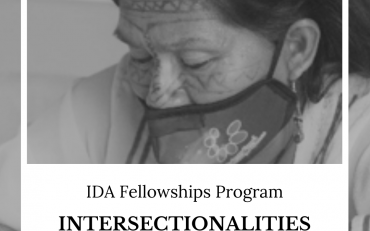The International Disability Alliance (IDA) prioritises the diversity of persons with disabilities in its governance and works with pre-eminence to strengthen the leadership of women with disabilities, promoting their empowerment and creating the conditions at the global level to accelerate their participation in all spheres of life on an equal basis with others. IDA is also further working on issues related to sexual orientation and gender identity for the inclusion of lesbian, gay, bisexual, transgender, intersex queer and other identities (LGBTIQ+) of persons with disabilities.
Women and girls with disabilities represent one-fifth of the world’s population of women. There is ample evidence to show that due to barriers, negative stereotypes and discrimination women with disabilities face barriers in most areas of life and are at least two to four times more likely to experience gender-based violence than women without disabilities. Women with disabilities are also disproportionately subjected to practices such as forced or involuntary sterilization, with prevalence up to three times higher than the rate for the general population.
LGBTIQ+ persons with disabilities are more likely to experience poverty and financial difficulties due to the multiple barriers they face trying to obtain employment, including both disability and gender identity discrimination. Despite these systemic barriers, very little accurate and disaggregated data is collected and analysed on key violations of rights and fundamental freedoms regarding women and girls with disabilities and LGBTIQ+ persons with disabilities worldwide, even in the global north, or regarding their access to rights-based services and their impact.
Additionally, laws and policies addressing women’s rights and sexuality, including the rights of the LGBTIQ+ community have traditionally ignored those with disabilities. This invisibility has perpetuated the situation of multiple and intersecting forms of discrimination against women and girls with disabilities and LGBTIQ+ persons with disabilities. They are often discriminated both against on the grounds of gender and disability and on other grounds as well.
The genesis of Article 6 of the CRPD lies in the need for States to prevent discrimination faced by women and girls with disabilities and to guide States to respect, protect and fulfil rights under the Convention bearing in mind the experiences of women with disabilities. The CRPD General Comment 6 also stresses that States parties must ensure closely consult and active involvement of LGBTIQ+ people with disabilities to represent the vast diversity in society in its consultations and public policies’ design.
Women with disabilities and LGBTIQ+ people with disabilities are not a homogenous group. Our understanding of diversity includes all types of impairments, in other words physical, psychosocial, intellectual or sensory impairments and they also have other important identities that shape their experiences: indigenous communities; refugee, migrant, asylum-seeking and internally displaced; those in detention (hospitals, residential institutions, juvenile or correctional facilities and prisons); living in poverty; those from different ethnic, religious and racial backgrounds; those with multiple disabilities and high levels of support; people with albinism.
It is important for the disability movement to reflect all these complexities, but it is equally important for the women’s movement and movements related to gender and sexuality to be aware and receptive to the inclusion of persons with disabilities.
IDA’s evaluation commissioned by SIDA and conducted between May and September 2019 highlighted that IDA’s work concerning disability and gender requires leveraging the work IDA and its members are currently undertaking at their own networks to develop intersectional approaches and create or strengthen on other linkages with organizations working on the rights of marginalized impairment groups and identities. To meet this goal, the IDA launched Fellowship focused on gender equality, intersectionality and social inclusion.
>>Return to IDA Fellowships Program Main page.

